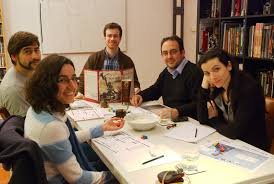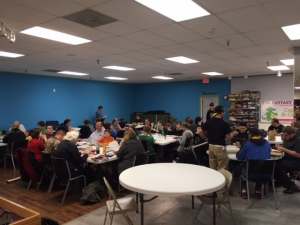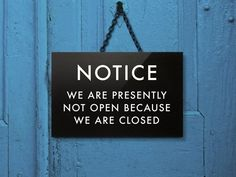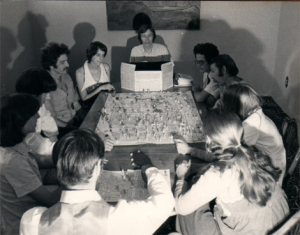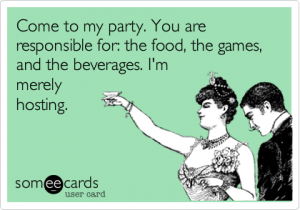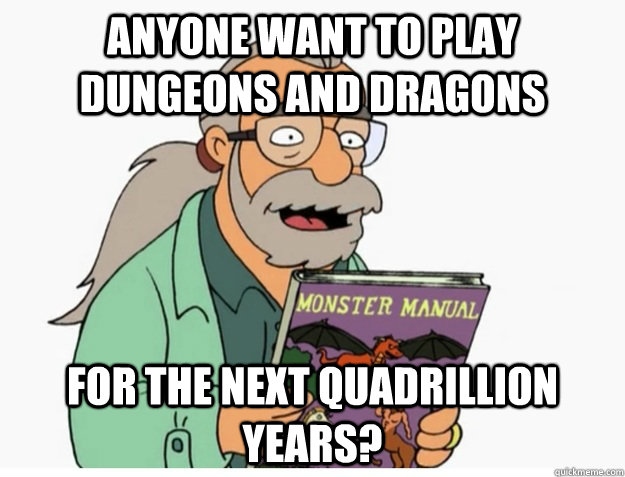I have a friend of mine who games because he’s a born storyteller. He’s one of the smartest people I know and while he’s sadly fallen into the trap of many smart people, the need to be right or at least never appear wrong, he’s at all times an insightful and thoughtful human being. He inspires me to think.
I have a friend of mine who games because it’s a world he controls. He’s been given the short stick his entire life; his body betrays him, his parents were demanding and never supportive, and he’s struggled for everything he’s got with never a complaint. He inspires me to endure.
I have a friend of mine who games because he wishes he were an anime character. He dismisses his body and thinks little of tradition of any kind. He wishes to live in a world of wacky comedic situations, resilient heros, big eye ladies, and the rule of cool. He inspires me to find my joy.
They, and we, all game for so many different reasons; we’re complicated creatures, we humans. Why? Why is gaming something that’s become not just a release and a community for those who don’t quite fit elsewhere but a mainstream product? The ever increasing popularity of all types and kinds of gaming, from classic board games to hundred million dollar video games begs the question. Why? Are we humans pre-programmed for games? Are we so in love with our evolutionary advantages of planning, foresight, insight, and reason that we must create additional worlds to exercise them?
My own experiences make me think the low hanging fruit of escapism gaming comes from mental health needs, the change of our society from struggle to ease, and the dissatisfaction of humanity in this age of refined higher education requiring frontiers.
Dungeons and Dragons was developed in the mid-60’s during a time of changing attitudes and life-styles. I know, I know, the same could be said of just about any decade or era in American history. But let’s break down some numbers? Yeah, you love numbers. The 1950’s and 60’s were a time of rapid infrastructure construction and massive population boom. Immigration saw over 36 million immigrants enter the country during those two decades and a birth rate that started at 22+ per thousand in 1950; the immigration numbers wouldn’t be matched again until the mid-90’s through the late 2000’s while the birth rate has never been matched since. However, by the end of 1970 immigration had dropped off by ~20% and births per thousand had dropped to 16. The exhaustive construction continued on into the late 70’s and created an infrastructure and population support that lasted well into the 2000’s before upgrades became a necessity; also, they are still needed but, you know, politics, am I right? We transition from the loud car with a family of seven covered in dust trekking across the midwest to a population of city dwellers purchasing food at the market and sitting at home watching television.
That, in my opinion, is when the Itch started. You know the Itch. It’s the thing that makes you want to scream at your boss when they say conference calls are really important to the success of the company and your personal phone call about your kid getting into a fight at school should take a back seat. It’s the feeling that there’s a horizon to explore, a frontier to conquer, even though you can’t find one. The Itch is the response of a primarily primitive lizard and monkey descended neural chemistry reacting to a living standard so high no human being in history could comprehend it. Maybe royalty. Yes, you live like an ancient king, even in your crappy apartment with your two cats, you enjoy a quality of life they simply lacked the mental tools to conceive of.
The Itch, albeit in a undeveloped state at the time, combined with his own love of games lead Gary Gygax to write that first draft of Dungeons and Dragons. As the Itch has grown in complexity with our own increasingly domesticated lifestyles so too has our own need for escapism, for that feel of new horizons, of adventure, and most importantly, that feeling that a person can make their own destiny, build it with their own hands that frankly is sorely lacking in modern society; the feeling of achievement. Ever wonder why Microsoft called them Achievements? They’re not dumb and they didn’t pick it at random. They want you to feel exactly that, achievement, when that shiny little icon appears on your screen accompanied by the happy little tone. What better way to get players to feel what you want them to then to tell them what the feeling they need to feel is?
We wear masks, different masks for different people. It’s a survival mechanism that every human uses but only those of us treading darkness have become it’s masters. We switch between the lying faces and the lying mouths from one social group to another like a dashing squirrel. We leap through the front door, land, taking in the environment, the people, pull up the right face for them. Then we skitter from room to room, switching between always on the move to avoid long conversation to hiding in the shadows, behind a cluster of people, or in a difficult to reach corner of the room.

We’re home, cold coffee sits on the desk, the steam long since passing up into the air and gone into memory. We hear the door open and put on a face, a mask, that at least gives the impression that you’re engaged with what’s around you. That you haven’t been staring at the screen, sitting in your chair, maybe your hand is actually on the mouse of the keyboard but you haven’t clicked or typed in tens of minutes. It isn’t until you hear the keys in the door that you rouse yourself and open something, anything, just to look like you’re engaged with what is there. You choose this, instead of engaging with the whirlwind in your mind, the endless spin cycle of terrible thoughts, worries, and choices.
You don’t hate your family at the holiday party, you don’t even dislike them. You just can’t seem to really understand why they’re so happy about a new suit your uncle bought. Everyone looks at you expecting a similar response and you give them what they expect. The disingenuous words coming easily after all this time. A master of faking happy, of faking “ok”, has made you and me an expert at tricking the normal people into thinking that we really are, maybe not as much as they, but close enough.
These moments are becoming increasingly common and until we have a method, an ethic, a lifestyle in the real world that compensates for the disappearing horizon we will ever turn to escapism and all the wonder, imagination, and stories that come with such a life. Gaming isn’t a cure for the veil of depression that seems to be spreading across the land but it is a treatment and like all treatments for all ailments we need to watch it, support it, and be aware of the impact and role that gaming plays in our world. Don’t dismiss this hobby out of turn, it can and has lifted up many from a dark well. I include myself in that category. This past year saw me diagnosed with depression with manic tendencies and anxiety centered around attention and crowds. Gaming became both the distraction it’s always been but also a life line. A light in my darkness that saw me through another bad day.
Good luck and good night.




 “
“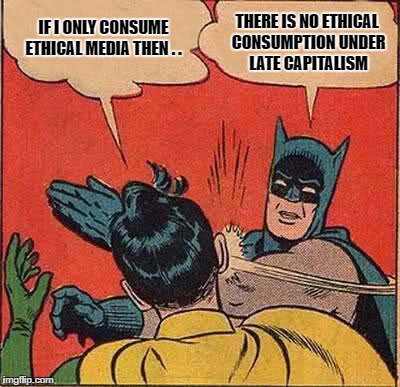 So first let’s address the elephant in the room. Trying to influence companies through consumption patterns gets a really bad rap because in many cases it’s a lost cause. Ethical consumption is all too often reduced to a marketing opportunity.
So first let’s address the elephant in the room. Trying to influence companies through consumption patterns gets a really bad rap because in many cases it’s a lost cause. Ethical consumption is all too often reduced to a marketing opportunity.  The other question I posed above is a more difficult one to tackle. In the past couple months I’ve seen several people upset at events in our community make personal decisions about who they would and would not give their money to and then openly shame others for making different choices. Often those different choices were well thought out, and a reflection of different ethical priorities. These choices were not based on willful ignorance or ethical laziness, and even if they were I have yet to see shaming someone for not sharing one’s values change a mind or even inspire greater thoughtfulness on an issue. I feel that as our hobby grows there is a vital place for discussing our values and who we want to be as a community. While we will never be a monolith, that discourse is a vital part the growth of any community, and with events like
The other question I posed above is a more difficult one to tackle. In the past couple months I’ve seen several people upset at events in our community make personal decisions about who they would and would not give their money to and then openly shame others for making different choices. Often those different choices were well thought out, and a reflection of different ethical priorities. These choices were not based on willful ignorance or ethical laziness, and even if they were I have yet to see shaming someone for not sharing one’s values change a mind or even inspire greater thoughtfulness on an issue. I feel that as our hobby grows there is a vital place for discussing our values and who we want to be as a community. While we will never be a monolith, that discourse is a vital part the growth of any community, and with events like 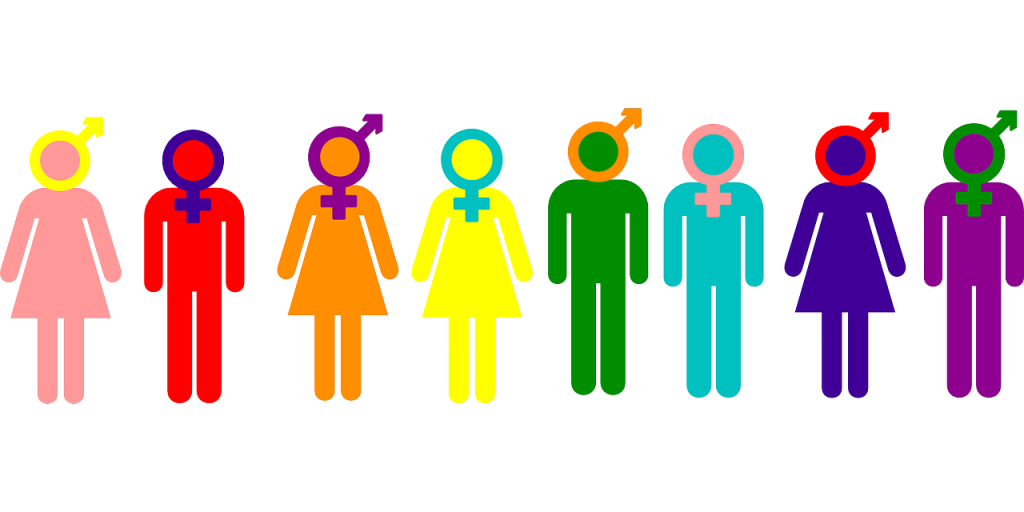
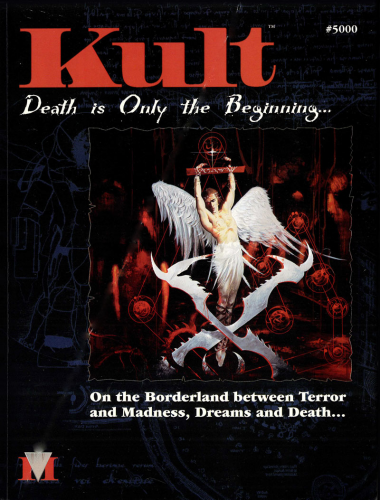


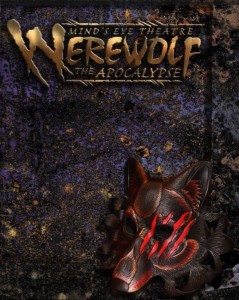
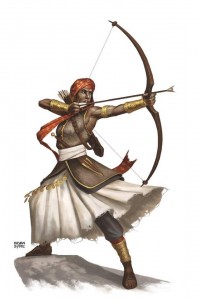
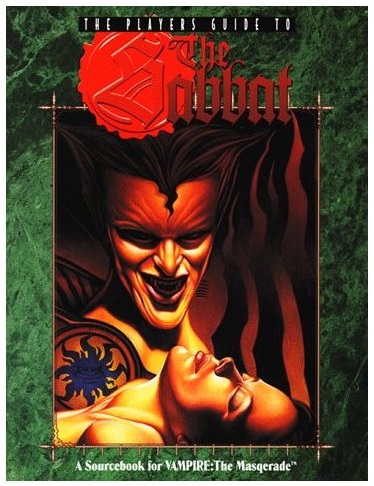

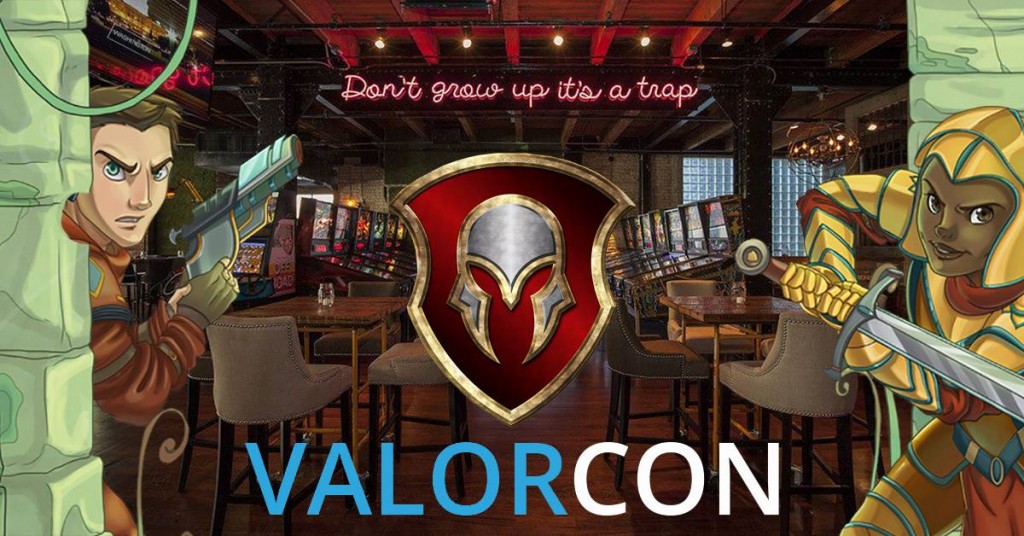
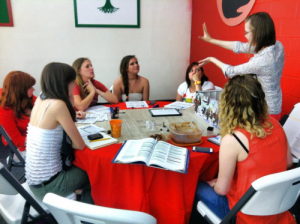 Welcome back to part two of the ongoing discussion on the social contract that exists in starting up a new tabletop RPG game. Last week we discussed the means in how to help determine the length and frequency that a game group will meet. So let’s recap that very briefly and then build off of that for this week’s topic: Where will the game be played and who will host the game?
Welcome back to part two of the ongoing discussion on the social contract that exists in starting up a new tabletop RPG game. Last week we discussed the means in how to help determine the length and frequency that a game group will meet. So let’s recap that very briefly and then build off of that for this week’s topic: Where will the game be played and who will host the game?